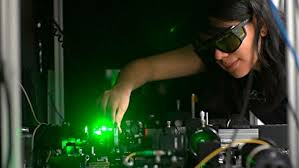
Breaking News
 BACKWARD ROLLING CONFIRMED: 1,624 Contracts Just Demanded Delivery NOW ($100 Silver is Inevitable)
BACKWARD ROLLING CONFIRMED: 1,624 Contracts Just Demanded Delivery NOW ($100 Silver is Inevitable)
SEMI-NEWS/SEMI-SATIRE: January 11, 2026 Edition
 "Appalling": Debanking Explodes To Record High In Britain
"Appalling": Debanking Explodes To Record High In Britain
 MTG explodes in astonishing f-bomb laden tirade as Trump orders Secret Service probe:
MTG explodes in astonishing f-bomb laden tirade as Trump orders Secret Service probe:
Top Tech News
 World's most powerful hypergravity machine is 1,900X stronger than Earth
World's most powerful hypergravity machine is 1,900X stronger than Earth
 New battery idea gets lots of power out of unusual sulfur chemistry
New battery idea gets lots of power out of unusual sulfur chemistry
 Anti-Aging Drug Regrows Knee Cartilage in Major Breakthrough That Could End Knee Replacements
Anti-Aging Drug Regrows Knee Cartilage in Major Breakthrough That Could End Knee Replacements
 Scientists say recent advances in Quantum Entanglement...
Scientists say recent advances in Quantum Entanglement...
 Solid-State Batteries Are In 'Trailblazer' Mode. What's Holding Them Up?
Solid-State Batteries Are In 'Trailblazer' Mode. What's Holding Them Up?
 US Farmers Began Using Chemical Fertilizer After WW2. Comfrey Is a Natural Super Fertilizer
US Farmers Began Using Chemical Fertilizer After WW2. Comfrey Is a Natural Super Fertilizer
 Kawasaki's four-legged robot-horse vehicle is going into production
Kawasaki's four-legged robot-horse vehicle is going into production
 The First Production All-Solid-State Battery Is Here, And It Promises 5-Minute Charging
The First Production All-Solid-State Battery Is Here, And It Promises 5-Minute Charging
 See inside the tech-topia cities billionaires are betting big on developing...
See inside the tech-topia cities billionaires are betting big on developing...
Thin film nanocrystal from Australia could make thin as glass night vision goggles that ...

Professor Dragomir Neshev from ANU said the new night-vision glasses could replace the cumbersome and bulky night-vision binoculars currently in use.
"The nano crystals are so small they could be fitted as an ultra-thin film to normal eye glasses to enable night vision," said Professor Neshev from the Nonlinear Physics Centre within the ANU Research School of Physics and Engineering.
"This tiny device could have other exciting uses including in anti-counterfeit devices in bank notes, imaging cells for medical applications and holograms."
Co-researcher Dr Mohsen Rahmani said the ANU team's achievement was a big milestone in the field of nanophotonics, which involves the study of behaviour of light and interaction of objects with light at the nano-scale.
"These semi-conductor nano-crystals can transfer the highest intensity of light and engineer complex light beams that could be used with a laser to project a holographic image in modern displays," said Dr Rahmani, a recipient of the Australian Research Council (ARC) Discovery Early Career Researcher Award based at the ANU Research School of Physics and Engineering.

 Storage doesn't get much cheaper than this
Storage doesn't get much cheaper than this

